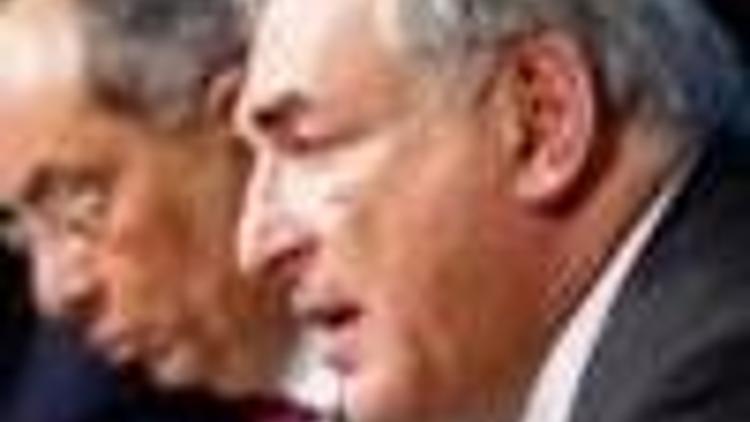Fund calls for policies to ease crunch
Güncelleme Tarihi:

WASHINGTON - As leaders of the Group of 20 countries, a bloc of the world's advanced and top developing economies, prepare to meet here at the weekend to seek improved cooperation to fight the ongoing global financial crisis, the International Monetary Fund called for financial expansion.
"Demand is falling around the world, and the IMF is revising down further its growth forecast. Additional monetary and fiscal policy response needs to be on the agenda," IMF Managing Director Dominique Strauss-Kahn told G20 leaders in a Nov. 6 letter. "There is scope for fiscal expansion in many advanced and some emerging economies; and with inflation declining, some central banks have scope for further monetary easing."
He also said that all countries needed to resist protectionism as a reaction into the downturn. His remarks came as financial ministers from the 19 largest economies delivered a message that governments need to act faster and be ready to cut interest rates or increase spending in order to fortify ailing world markets.
The G20 finance ministers' Sao Paolo meeting was a preparatory session for the weekend's Washington summit. The G20's members are G7 countries, the world's top advanced economies; major developing nations including China, Russia, India and Turkey; and the EU.
The IMF and the World Bank also take part in the G20 meetings.
U.S. President George W. Bush last month called for the G20 leaders gathering here to boost global coordination and cooperation against the financial crisis.
The IMF said last week that the top advanced economies collectively were expected to shrink 0.3 percent next year, with the United States' negative growth reaching 0.7 percent.
Strauss-Kahn said that the G20 leaders summit was facing the task of dealing with the fallout of the financial crisis and dealing with the longer-term global architecture - fixing an inadequate regulatory system and developing a reliable early warning and response system.
"Emerging markets are under stress as the capital flows that have sustained growth dry up across the board. The international community must take action," he said. "For this reason, the fund has moved rapidly to assist several countries with substantial financing and policy advice, and also put in place a new Short-Term Liquidity Facility to provide rapid financing for countries with strong fundamentals."
He was referring to a recent IMF move to form a special fund worth more than $200 billion for urgent credit line assets for emerging markets.
A new Bretton Woods
Strauss-Kahn said that in the light of the crisis, the design of financial regulation required a rethink. "The crisis has underlined the importance of having its ultimate implementation by national authorities subject to surveillance by a body or network of institutions alert to systemic implications across financial instruments, markets, and countries," he said.
For the longer term, he said he endorsed calls for "a new Bretton Woods agreement," a reference to the Bretton Woods conference, a gathering of 44 nations in July 1944 to regulate the international monetary and financial order after the conclusion of World War II.
But Strauss-Kahn also implied that the weekend's G20 summit was unlikely to produce radical change in the way global economy is governed, because more time, work and shared understanding were needed in advance.
"One important lesson of the original Bretton Woods agreement was that its foundations were carefully laid through serious and vigorous discussion of the underlying issues," he said.
The global crisis and ensuing international efforts to fight it come at a time when Turkey is still undecided over a new precautionary stand-by arrangement with the IMF.

